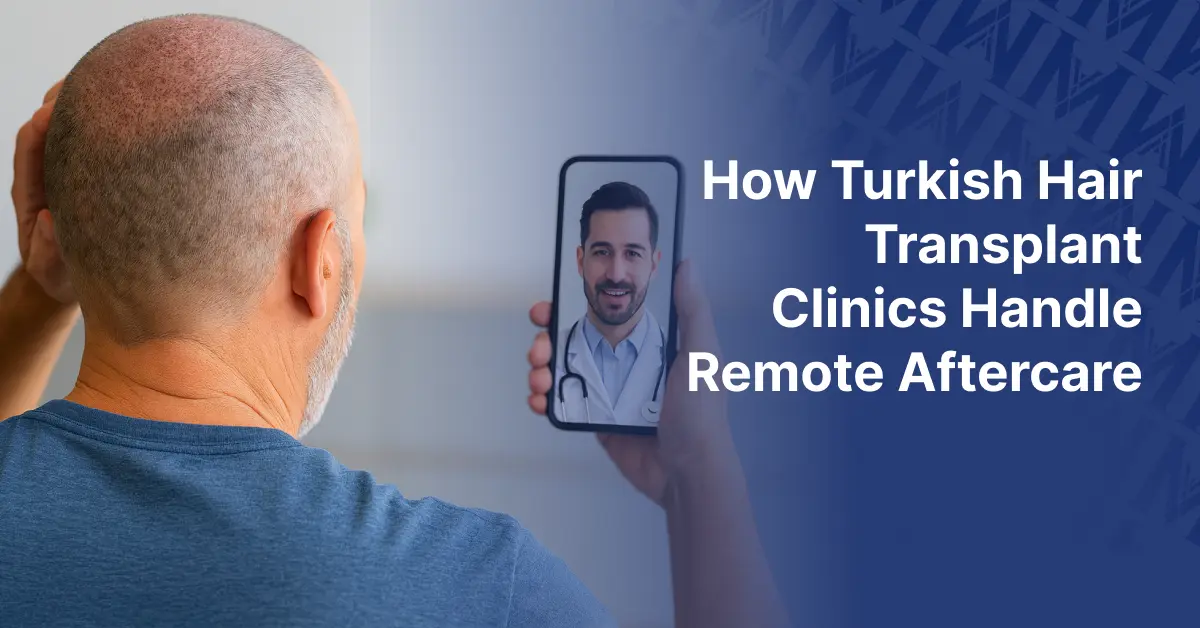Getting a hair transplant in Turkey means flying thousands of miles for your procedure, then heading home while your grafts spend the next 12 to 18 months growing into full results. The big question that keeps potential patients up at night is simple: what happens when you need help, and your surgeon is back in Istanbul?
Turkish clinics have developed streamlined aftercare systems that ensure continuous support once you return home, maintaining the same personal relationship you established during your consultation.
Turkish hair transplant clinics handle aftercare through direct WhatsApp communication with your assigned patient coordinator, backed by the surgeon’s review of your progress photos. Your same coordinator who handled your consultation stays with you throughout recovery. Every photo you send gets reviewed by the surgeon who performed your procedure. Support is available in multiple languages, and most clinics guarantee results with free revision procedures if needed.

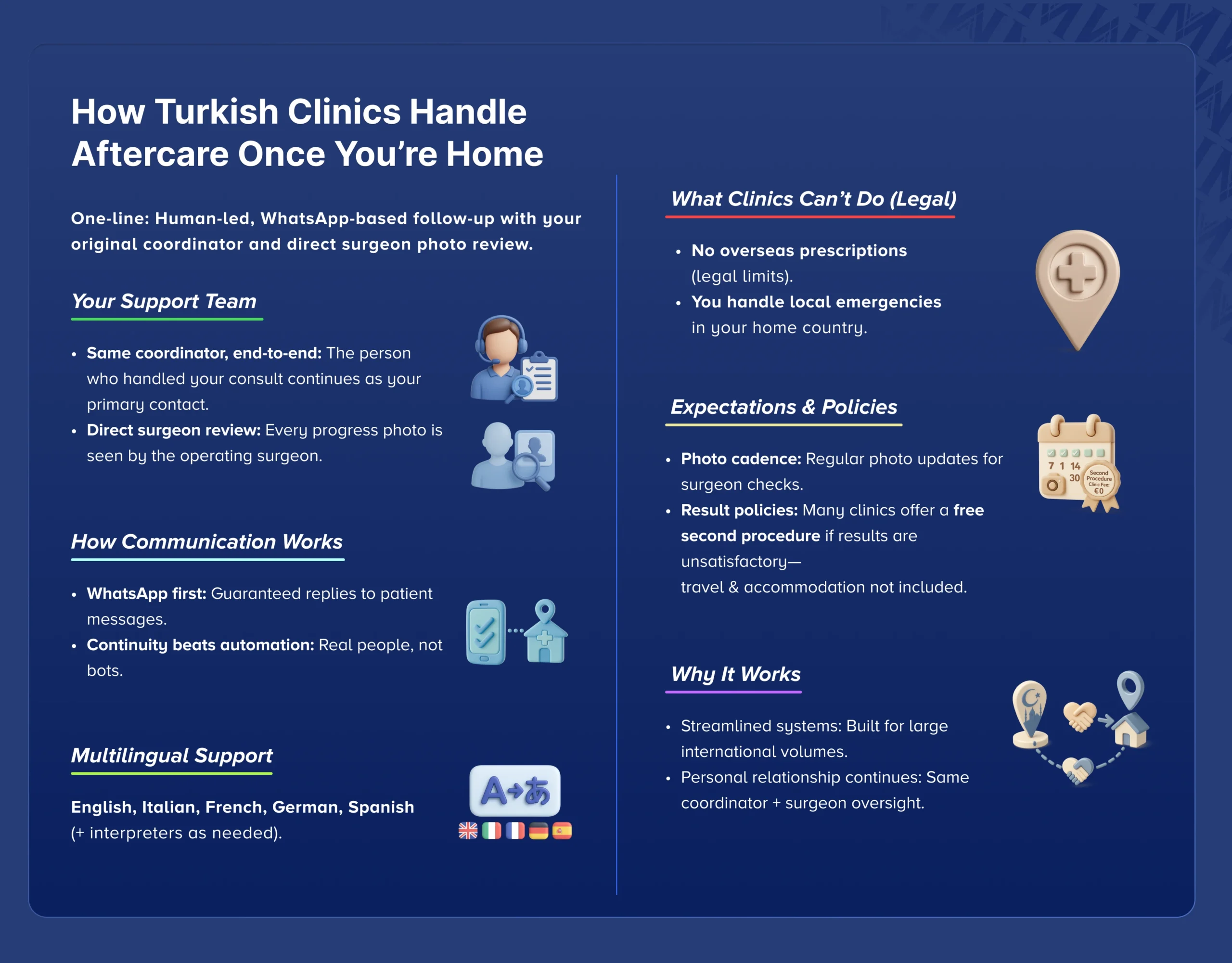
Key points:
- Your same patient coordinator who handled your consultation manages your entire aftercare process
- WhatsApp serves as the primary communication platform with guaranteed responses to all patient inquiries
- Every progress photo receives direct review by the surgeon who performed your procedure
- Patients remain responsible for local medical care and emergency situations in their home country
- Turkish clinics cannot prescribe medications overseas due to legal limitations
- Most clinics offer free second procedures if results are unsatisfactory, though patients pay travel and accommodation costs
Your Patient Coordinator Manages Your Entire Recovery
At Medart and many trusted Turkish clinics, the same patient coordinator who helped you during your consultation will also monitor your recovery after surgery. This ongoing support builds a relationship that is very helpful during your recovery when you need reassurance and guidance. Your coordinator is your dedicated advocate at the clinic. They understand your specific concerns and medical history. While some clinics have different staff members handle aftercare, this can disrupt the personal connection you built before surgery. The personal relationship goes beyond just asking and answering questions. Coordinators offer emotional support during tough recovery times, help set expectations when healing is slow, and celebrate progress milestones with patients.
Direct Communication: WhatsApp, Email, and Video Calls
You can reach your patient coordinator anytime through WhatsApp, instant messaging, or email if you have concerns, updates about your progress, or need guidance. This open communication allows you to ask questions about your recovery without waiting for scheduled check-ins. You will receive a response to all your inquiries. If you have medical concerns about your healing, your coordinator will send them directly to the surgeon who did your procedure. If you notice anything unusual during the first week, you can ask for a video call. This gives you a chance for face-to-face interaction when you need more reassurance or when the surgeon needs to see something in real-time that photos can’t show well.heCritical First Week: Daily Photo Monitoring
The first week after surgery is the critical period where infection and necrosis can develop. Turkish clinics require daily photo submissions during this time to ensure nothing concerning is happening. Daily monitoring includes:- You send photos every single day for the first week
- Coordinator checks your scalp condition
- Pictures sent to surgeon for medical review
- Video call available if you have concerns
Day 10: The Scab Removal Checkpoint
Day 10 marks an important milestone when your scabs will come off. Turkish clinics ask for before photos with scabs still on, then re-explain the detailed process of how to safely and gently remove scabs. After you remove the scabs, you send after photos so the medical team can evaluate the condition of your scalp. After the scabs are off, major complication risks like infection and necrosis are essentially eliminated. The process requires patience and gentle technique. Rushing scab removal or using aggressive methods can damage grafts. Your coordinator walks you through the process step by step, then reviews photos to confirm everything looks as expected.Months 2-4: Managing Shock Loss Anxiety
Shock loss is a natural part of the hair transplant process, but most patients become anxious when it begins. Between months two and four, you’ll likely experience temporary shedding of both transplanted grafts and existing hair around the transplant area. Patient coordinators reassure you that shock loss is completely normal and expected. The follicles beneath your scalp remain intact even though the hair sheds. Turkish clinics want you to send a picture every month to track your progress during this period. These monthly updates help coordinators and surgeons monitor your recovery trajectory and provide reassurance when you’re experiencing the most doubt about your results.Months 4-8: The Slow Growth Phase
After shock loss, you might notice very slow hair growth. Particularly around the six-month mark, you might suspect your results aren’t coming in properly. Patient coordinators reassure you that this slow growth phase is completely normal. Important reminders during this phase:- You cannot evaluate results until after a year from surgery
- Final results take 12 to 18 months to develop
- Don’t compare yourself to other people’s results
- Everyone’s hair grows at different rates
Months 8-18: Road to Full Results
Between months 8 and 18, your results gradually develop into their final appearance. Monthly photo submissions continue during this period, tracking your progress toward the complete outcome. The waiting becomes easier as visible improvements accumulate, but the process still requires patience. Your coordinator continues check-ins throughout this extended timeline, monitoring your long-term progress and addressing any concerns that develop.Complete Instructions Before You Leave Turkey
Turkish hair transplant clinics provide complete post-operative care instructions before you leave the country. You receive both detailed verbal and written directions on what to expect in the next year. Your instructions include:- Day-by-day recovery protocols for the first 14 days
- Medication schedules with specific timing and dosage requirements
- Activity restrictions and timelines for resuming exercise
- When you can return to work and wear hats
- Proper hair washing techniques starting on day 3
- Sleeping position recommendations to protect grafts
Photo Submission Requirements
The Ministry of Health requires documentation of patient outcomes for official medical records, making photo submission a regulatory necessity rather than optional monitoring. Proper photo submission requires:- Multiple angles: front, back, left side, right side, and top views
- Good lighting conditions (natural daylight preferred)
- Clear images that show detail
- Photos sent at scheduled intervals throughout recovery
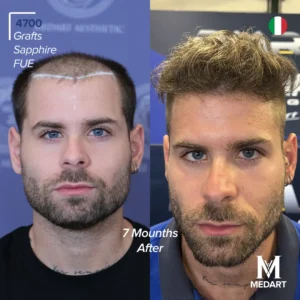
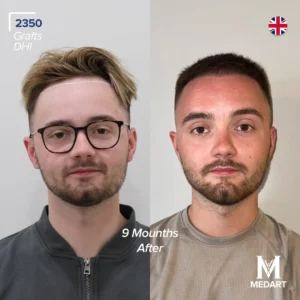
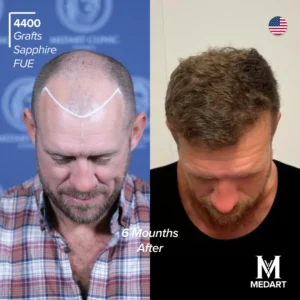
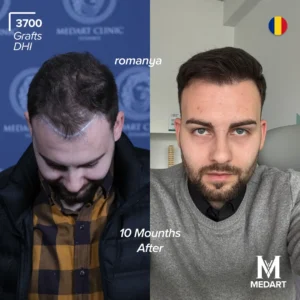
What Turkish Clinics Cannot Provide
Turkish clinics maintain clear boundaries regarding support they can provide once patients return home. Important limitations include:- Medical professionals cannot prescribe medications across international borders
- Patients experiencing medication issues must consult local physicians too
- Emergency situations demand immediate local medical attention
- Turkish clinics cannot examine patients physically from a distance
Results Guarantee
Most reputable Turkish clinics offer free second hair transplant procedures if initial results fail to meet established criteria. Turkish clinics evaluate results based on graft survival rates, density achievement, and overall aesthetic outcomes. The guarantee covers:- Medical costs of revision surgery at no additional charge
- Surgeon evaluation to determine if revision is warranted
- Clear criteria explained during initial consultation
- Arranging and paying for flights to Turkey
- Hotel and accommodation costs
- Local transportation expenses
- All travel-related logistics
How quickly do Turkish clinics respond to patient questions?
Turkish clinics respond very quickly — usually within 5 to 30 minutes.
Will a doctor review my healing progress remotely?
Yes. All your progress photos are reviewed by the surgeon who performed your procedure. Patient coordinators handle communication and scheduling, but medical assessments always come from the surgeons.
What happens during the shock loss phase?
Between months 2 and 4, temporary shedding called shock loss is common and completely normal. Your follicles remain intact beneath the scalp. Monthly photo submissions help your coordinator and surgeon monitor your progress during this anxious period.
Can Turkish clinics prescribe medications after I return home?
No. Medical professionals cannot legally prescribe medications across international borders. If you need antibiotics or prescription adjustments, you must see a local doctor. Turkish clinics can provide documentation and guidance, but the prescription must be issued in your own country.
What if I want to use hair products during recovery?
Always ask your patient coordinator before using any hair products or medications. They will check with your surgeon to confirm if the products are safe for your healing stage. Never start new products without approval.
Does the results guarantee cover my travel costs?
No. The results guarantee covers only the medical procedure cost of revision surgery. Travel expenses — flights, accommodation, and local transportation — are the patient’s responsibility.
How long does aftercare support continue?
Most Turkish clinics provide consistent follow-up, communication, and support throughout the first year — and often beyond. Long-term guidance helps ensure optimal results and addresses any concerns during extended healing.
Do Turkish clinics offer continuous support after I return home?
Yes. Clinics in Turkey are known for their streamlined aftercare systems, maintaining ongoing communication and personalized support long after you leave the country.

